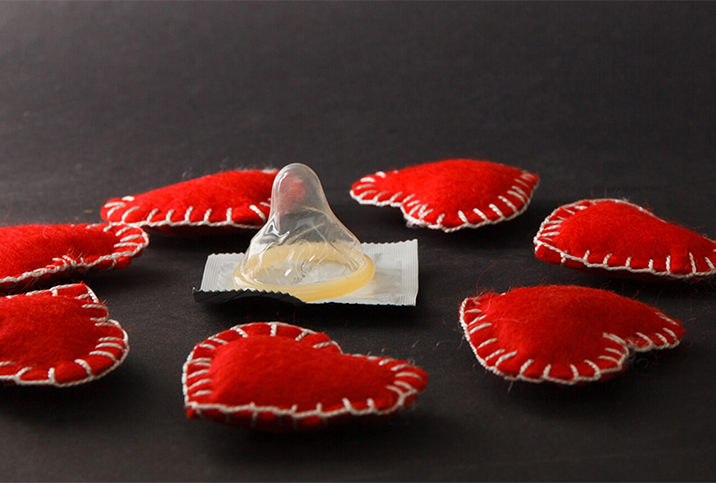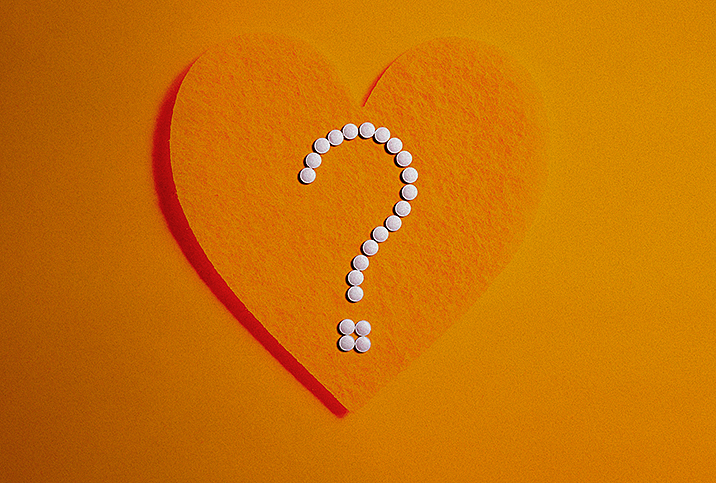Heart Health and ED: Myths & Misconceptions

Erectile dysfunction (ED) is the subject of much misinformation. So is heart disease. And considering that the relationship between the two is so strong, men need to be aware of the truth as it relates to each individually, and the two together.
Seeing past the myths and misconceptions can be difficult, which is why we're presenting some of the most prevalent myths about heart disease and ED, and then delivering the information necessary to debunk them.
Myth: ED is sex-related and has nothing to do with my heart.
Reality: Erectile dysfunction is often mistakenly attributed to normal aging, or assumed to be linked to relationship problems (e.g., not being attracted to a partner). In fact, cardiovascular health—or lack of it—can cause ED. One study found 57 percent of men with a history of bypass surgery, and 64 percent of men hospitalized for heart attacks, had experienced erectile dysfunction. The condition represents an important predictor of future heart disease, as strongly linked as smoking and family history. Men with ED have an 80 percent greater risk of heart disease.
One of the first symptoms of a cardiovascular problem is endothelial dysfunction, in which blood vessels don't open as they should. Vessel dilation is required so blood can enter and stay in the penis to generate a firm erection. When a man experiences endothelial dysfunction, some of the first symptoms show up in the penis as ED. So, while there are many causes of erectile dysfunction, vascular issues account for 70 percent of them.
The good news is that improving your cardiovascular health through diet, exercise and other lifestyle changes has been shown to decrease risk of heart issues.
Giddy Urologist Dr. Edwin Morales talks about how a person’s medical history can affect their erectile dysfunction. Watch the video here.
Myth: ED is a more important symptom than chest pain.
Reality: Erectile dysfunction is definitely a real “downer,” but on its own it's not as serious an issue as chest pain. Nevertheless, a lot of men who experience ED as an early symptom of coronary heart disease report sexual health concerns to their doctor but fail to mention other key symptoms, such as chest pain/tightness or shortness of breath, that signify heart health issues.
Heart disease can have serious consequences beyond erectile dysfunction, including heart failure, heart attack, stroke, aneurysm or sudden cardiac arrest. When consulting with your doctor, don't omit any symptoms, and keep an eye out for other heart disease risk factors, too, such as high blood pressure or cholesterol, diabetes and obesity.
Myth: ED predicts heart disease only in older men.
Reality: Heart disease rates may be higher in older men—living longer means more time for risk factors to cause disease—but a 2009 study of men with ED showed that the highest risk of heart disease was among younger subjects, ages 40 to 49. This group was twice as likely to get heart disease over the next 10 years than men without erectile dysfunction. In fact, research suggests ED might actually be the first sign of cardiovascular disease in younger guys. Whether you're in your 20s, 40s or 80s, if you have erectile dysfunction, you should be screened for heart disease, ideally by a cardiologist.
Myth: Herbal supplements are all I need.
Reality: No evidence exists to support the treatment of heart disease-related ED solely with supplements (such as panax ginseng, rhodiola rosea, DHEA, L-arginine, yohimbe). In addition, given the fact most supplements are not tested or approved by the Food and Drug Administration, induce side effects and can interact with other medications, they could actually place you at risk for other health problems. Talk with your doctor before you take any of them, and remember that supplements alone won't treat heart disease, either.
Myth: Only medications, like Viagra, can treat ED.
Reality: There are many treatments for erectile dysfunction. In fact, a 2015 study reported only one-third of guys with erectile dysfunction use phosphodiesterase inhibitors—such as avanafil (Stendra and Spedra) and sildenafil (Viagra)—and that those meds typically worked fully for only 70 percent of patients who tried them. Furthermore, these types of medications may not be safe for men with heart disease.
One alternative to ED medications is a wearable constriction or vacuum device. Some medical-grade wearables like EddieⓇ are proven effective in maintaining erections, without the side effects of ED medications.
Understanding the root cause of your ED and treating it is essential. Erectile dysfunction caused by endothelial dysfunction, for example, can actually be treated by reversing the endothelial dysfunction. For people with heart disease, treating and reversing it can also put an end to ED and get your sex life up and running again.
ED can have many causes, and it can also be an important sign that something serious is going on with your heart health. If you experience ED, don't be embarrassed and don't brush it off as no big deal. Regardless of your age and risk factors, see your doctor and ask to be screened for heart disease. A healthy cardiovascular system supports a healthy sex life.


















